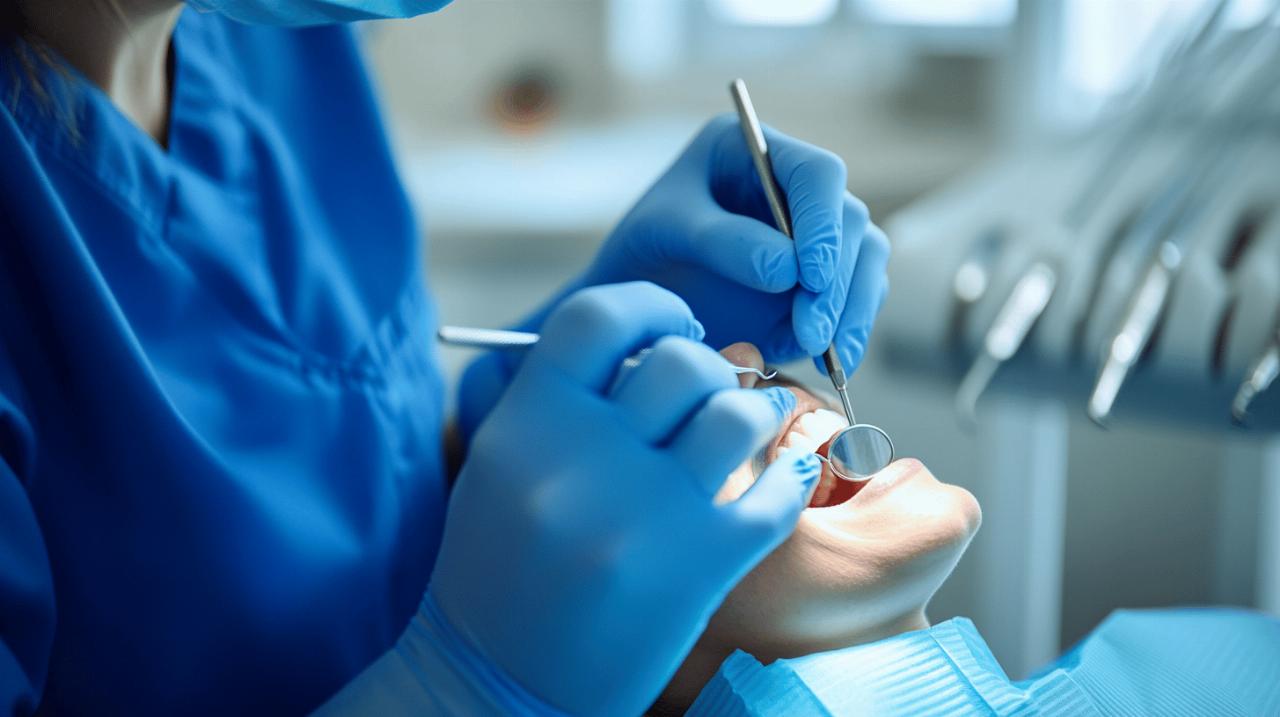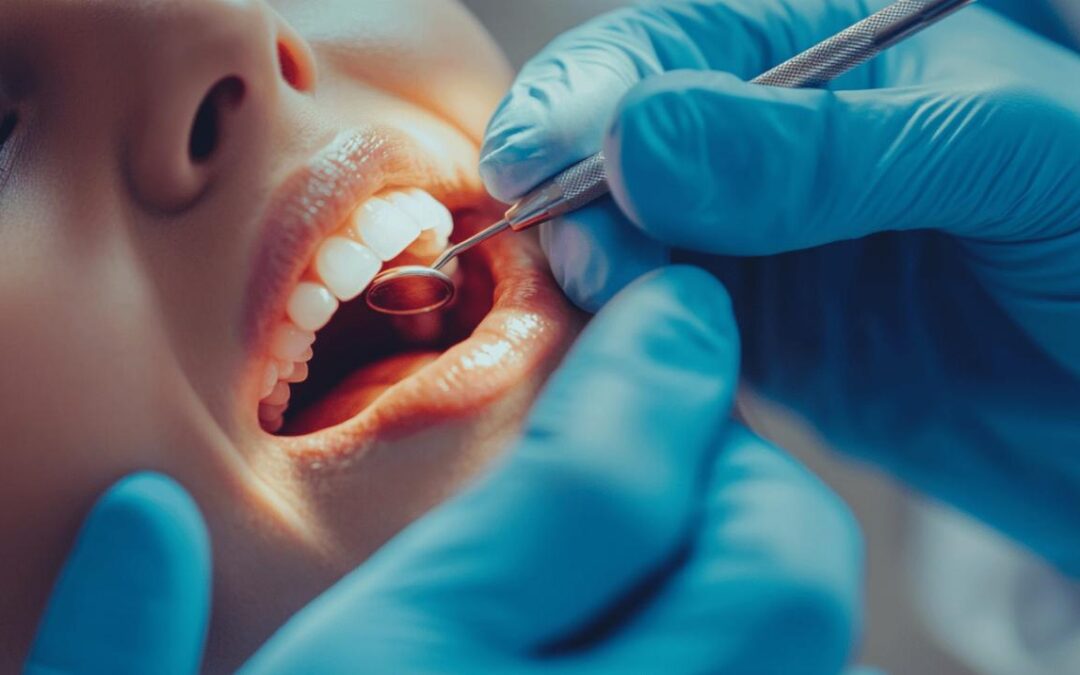When it comes to dental health issues, understanding what treatments are covered by the NHS can be as complex as the procedures themselves. Gum graft surgery represents one of those grey areas where coverage isn't always straightforward, particularly during the recovery period.
Understanding nhs coverage for gum grafts
The NHS provides a range of dental treatments, but not all procedures are automatically covered. Gum grafting, a surgery designed to address receding gums by transferring healthy gum tissue to areas where it's lacking, falls into a category that requires specific conditions to qualify for NHS funding. This procedure serves multiple purposes, including covering exposed tooth roots, reducing sensitivity, protecting teeth from damage, and improving gum appearance.
Qualifying conditions for nhs periodontal treatment
To receive NHS coverage for gum graft surgery, your condition must be deemed medically necessary rather than purely cosmetic. Periodontal disease, which can lead to significant gum recession, is often considered a qualifying condition. Patients experiencing tooth sensitivity due to exposed roots, increased risk of tooth decay, or those with diagnosed periodontal disease may meet the threshold for NHS treatment. It's worth noting that NHS dentistry operates under the Unit of Dental Activity (UDA) system, with recent updates increasing the minimum UDA value to £28 to make NHS work more appealing to dental professionals.
The distinction between medical necessity and cosmetic procedures
The NHS makes a clear distinction between treatments performed for health reasons and those done primarily for aesthetic purposes. While treatments like teeth whitening, dental implants, and veneers are typically only available privately, gum grafts occupy a middle ground. If your dentist determines that the procedure is required to address a health issue such as preventing further tooth damage or treating periodontal disease, NHS funding may be available. However, if the primary motivation is improving the appearance of your smile, you'll likely need to seek private treatment, where costs can start from around £950 per tooth.
The financial aspects of gum graft surgery
Understanding the potential costs involved with gum graft surgery is essential for planning your dental care, especially if NHS coverage isn't guaranteed. In the private sector, UK patients can expect to pay a significant sum for this specialized periodontal treatment.
Potential costs and nhs contribution
If your gum graft is deemed medically necessary and you're referred to a hospital for treatment, the NHS may cover the procedure similarly to other hospital-based care. However, unlike standard NHS dental treatments where patients typically contribute to costs, hospital-referred dental procedures are often fully covered. For those requiring treatment outside the hospital setting or for reasons not meeting NHS criteria, private costs for gum grafting start at approximately £950 per tooth. This figure can increase depending on the complexity of the procedure, the type of graft required, and the number of teeth needing treatment.
Supplementary insurance options for comprehensive coverage
Given the potential gaps in NHS coverage for periodontal treatments like gum grafts, many patients consider supplementary dental insurance or private medical insurance. These additional policies can provide more comprehensive coverage for specialized treatments and may reduce waiting times significantly. For older patients or those on limited incomes, exploring insurance options becomes especially important to manage potential out-of-pocket expenses. Some dental insurance plans offer annual allowances that can offset the cost of procedures not fully covered by the NHS, including certain aspects of recovery care following gum graft surgery.
Navigating the referral process
Securing NHS funding for gum graft surgery typically begins with your regular NHS dentist and follows a specific pathway through the healthcare system. Understanding this process can help you advocate for the care you need while maximizing potential coverage.
Getting a Proper Assessment from Your NHS Dentist
Your journey toward NHS-covered gum graft surgery starts with a thorough assessment by your NHS dentist. During this evaluation, they'll examine the extent of your gum recession, assess related symptoms like tooth sensitivity, and determine if there's underlying periodontal disease. Documentation of these medical necessities is crucial for NHS funding consideration. Your dentist will need to clearly establish that the gum graft is required for health reasons rather than cosmetic improvement. If they determine that your condition warrants specialist care, they can initiate a referral to a hospital periodontist who provides NHS services.
What to expect during hospital consultations
Once referred to a hospital dental service, you'll have a consultation with a specialist periodontist. This appointment typically involves a comprehensive oral examination, potentially including X-rays and scans to assess the condition of your gums and underlying bone structure. The specialist will discuss the type of graft most suitable for your situation, whether that's a connective tissue graft, free gingival graft, pedicle graft, or possibly pinhole surgery. During this consultation, you should receive information about the procedure itself, expected outcomes, potential risks, and recovery timeline. This is also the appropriate time to clarify any questions about NHS coverage for both the procedure and follow-up care.
Recovery and aftercare considerations
The recovery period following gum graft surgery is a critical time that influences the long-term success of the procedure. Understanding what support the NHS provides during this phase and how to maintain your oral health going forward is essential for optimal results.
Nhs support during the healing period
After your gum graft surgery, the NHS typically provides necessary follow-up appointments to monitor healing and address any complications. These check-ups are crucial as the recovery process takes several weeks, during which you may experience pain, swelling, and some bleeding. Your NHS dentist or specialist may prescribe pain relief medications and antibiotics to prevent infection, which might be subject to standard NHS prescription charges unless you're exempt. While the NHS covers these essential aspects of aftercare, additional services like specialized oral rinses or certain pain management options might not be included and could require out-of-pocket payment.
Preventative measures to avoid future gum recession
Preventing further gum recession is vital after gum graft surgery, as additional grafts might be needed if the underlying causes aren't addressed. The NHS strongly emphasizes preventative dental care through its SmileforLife programme and other initiatives. Your dentist will likely recommend specific oral hygiene practices, including proper brushing techniques to avoid damaging your gums. Regular dental check-ups and professional cleanings, which may be partially covered by the NHS depending on your treatment band, play an important role in maintaining gum health. For patients with a history of periodontal disease, more frequent professional cleanings might be recommended, and the coverage for these should be discussed with your NHS dental provider.
The nhs dental recovery plan and gum health
 Right then, the NHS does provide a range of dental health treatments, including periodontal care, which might cover gum grafts under specific circumstances. Gum recession can lead to serious dental problems if left untreated, potentially requiring gum graft surgery to restore oral health.
Right then, the NHS does provide a range of dental health treatments, including periodontal care, which might cover gum grafts under specific circumstances. Gum recession can lead to serious dental problems if left untreated, potentially requiring gum graft surgery to restore oral health.
The NHS Dental Recovery Plan aims to make dental care quicker, simpler and fairer across the UK. This plan intends to provide 1.5 million extra NHS treatments or approximately 2.5 million more appointments. For patients concerned about gum health issues, understanding how this recovery plan addresses periodontal treatments is essential.
How the recovery plan addresses periodontal treatments
The NHS Dental Recovery Plan introduces several measures that may impact access to periodontal treatments like gum grafts. While the plan doesn't specifically mention gum grafts, it does make broader changes to NHS dentistry funding that could affect availability.
A key element is the New Patient Premium (NPP) scheme running from March 2024 to March 2025. Dental practices receive additional credit of £15 for new patients needing band 1 care and £50 for those requiring band 2 or 3 care. This might improve access for patients with periodontal disease who haven't seen an NHS dentist in the past two years.
The minimum Unit of Dental Activity (UDA) value has increased to £28, making NHS work more financially viable for dental practices. This could potentially benefit patients seeking periodontal treatments as practices may be more willing to take on complex cases.
For severe periodontal conditions requiring gum graft surgery, it's worth noting that while cosmetic dental procedures like teeth whitening and veneers are typically private, treatments deemed medically necessary may be available on the NHS. Gum grafting might be funded by the NHS if clinically necessary to address issues like protecting teeth from damage or reducing tooth sensitivity due to periodontal disease.
Accessing specialised gum care through nhs pathways
Accessing specialised gum care, including gum graft surgery, through the NHS requires understanding the referral pathways. Typically, you'll need a referral from your NHS dentist who will assess the severity of your condition.
If you're referred to a hospital for treatment, you won't have to pay for dental treatment in the same way you might at a dental practice. This is particularly relevant for complex periodontal cases that might require gum grafting.
The types of gum grafts potentially available include connective tissue grafts, free gingival grafts, and pedicle grafts. The appropriate type depends on your specific condition and will be determined by the dental specialist.
While waiting times for NHS procedures can be lengthy, the Dental Recovery Plan aims to improve access. The plan includes mobile dental vans to reach underserved areas and recruitment incentives ('golden hellos') of £20,000 for dentists to work in areas with limited dental provision.
For patients with periodontal disease, it's crucial to maintain regular dental check-ups to monitor gum health and prevent further recession. The NHS recovery plan emphasises preventative care through programmes like 'SmileforLife', which focus on early intervention and oral health education.
If your gum condition is severe enough to warrant a graft, discuss with your dentist whether it qualifies for NHS funding based on medical necessity rather than cosmetic concerns. Keep in mind that even when covered by the NHS, you may still need to contribute towards treatment costs unless you're exempt.

